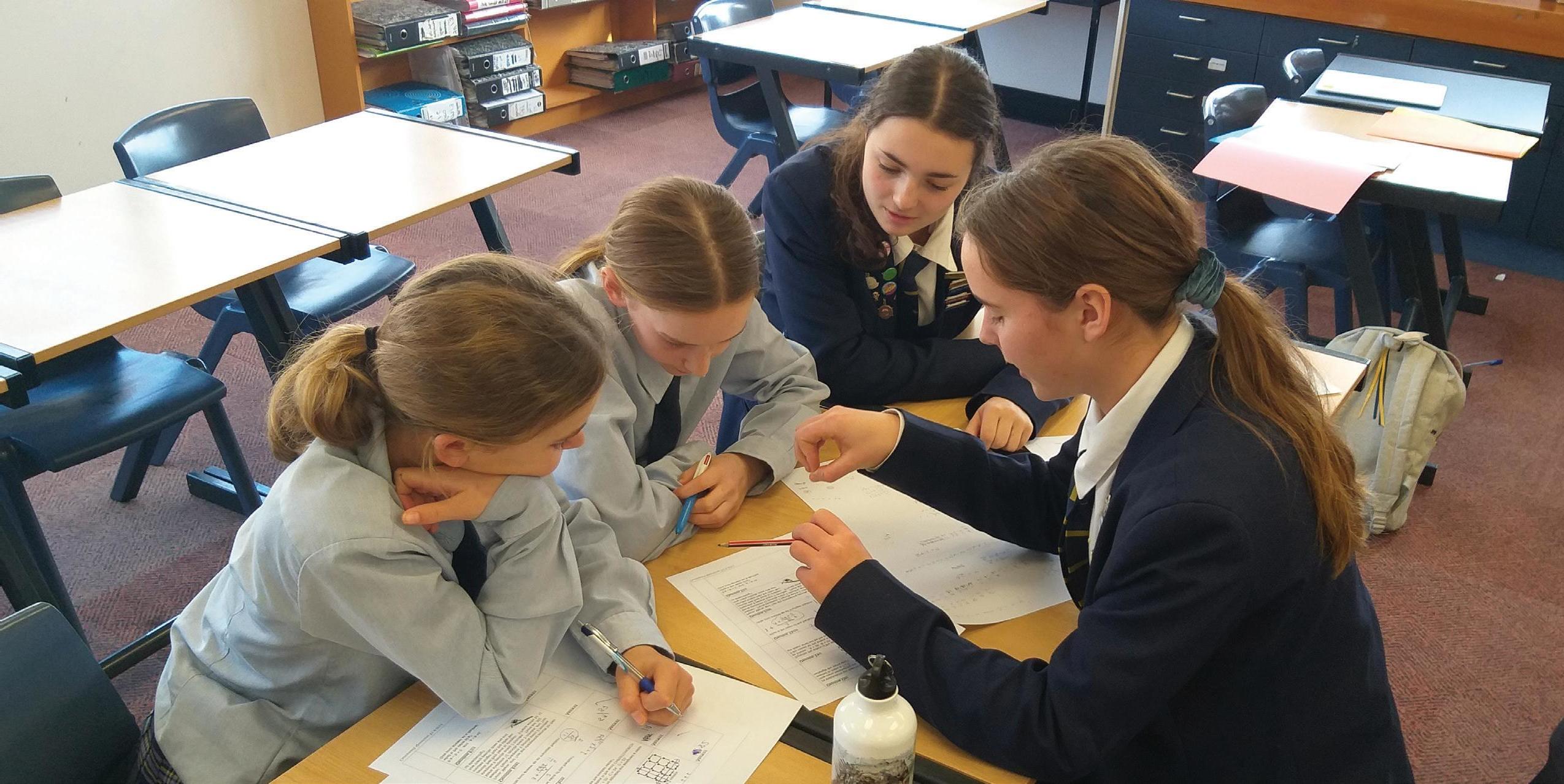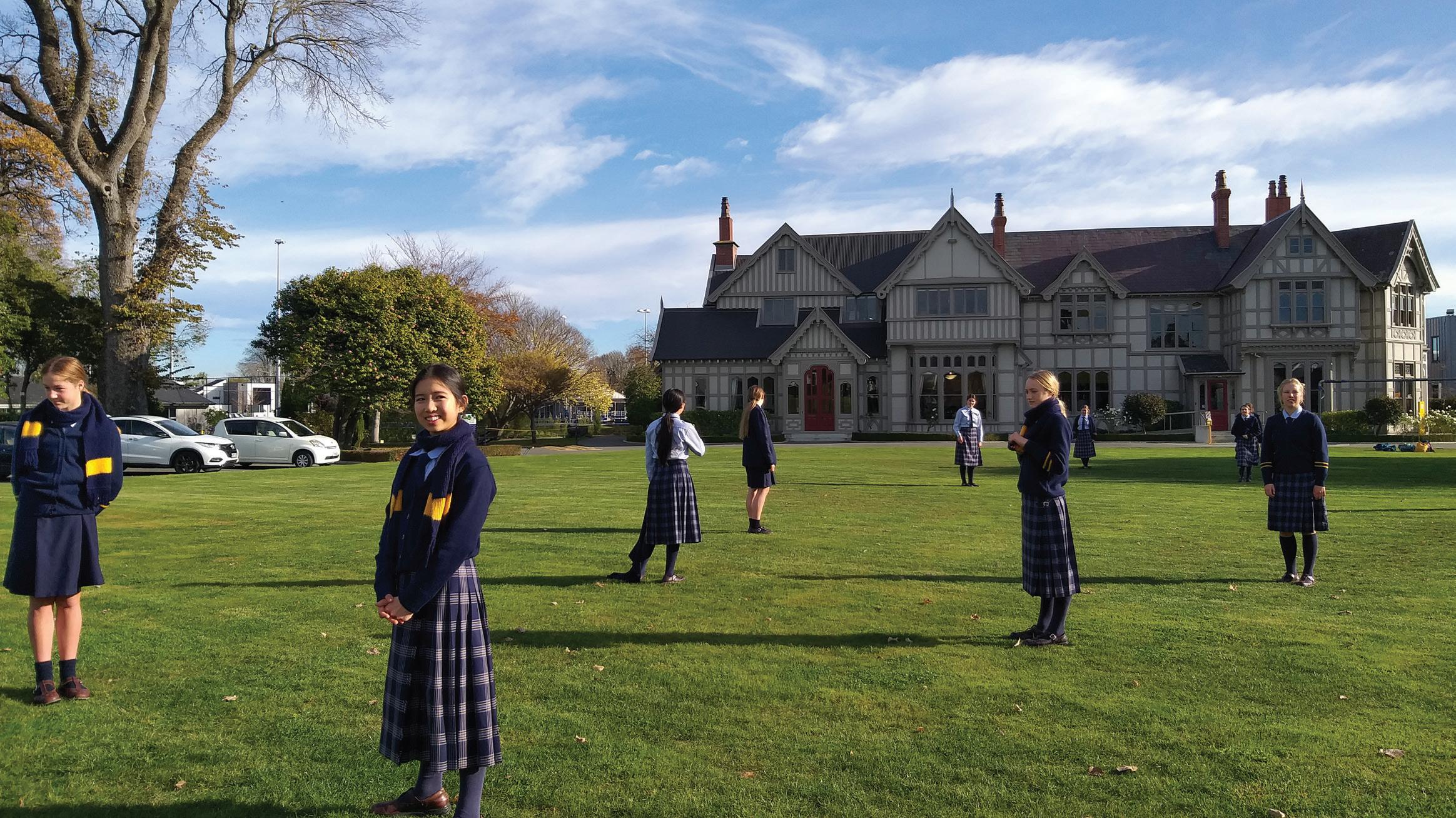
4 minute read
Mathematics and beyond
Words by Craig Bradley HEAD OF LEARNING AREA MATHEMATICS AND STATISTICS
We are writing at a time when the job market has been turned on its head. However, regardless of the ramifications of Covid-19, we live in a world where data is everywhere and numeracy and the ability to use, interpret and critique data is becoming more and more important. We are fortunate in the way that Statistics is taught and assessed in the NCEA curriculum, as it has placed New Zealand right at the leading edge when it comes to Statistics Education.
Alongside the numeracy and data skills needed for everyday life, the value of careers with strong mathematical foundations cannot be underestimated. We are going to touch on how we are working at Rangi to develop skills, confidence, and passion in mathematics. We will also reflect on how the remote learning period has been a timely reminder for us all about how girls learn and how we work with them.
Teaching girls Mathematics and what we “learned” at Rangi Ruru during the Remote Learning period:
While Mathematics has not really changed for centuries, the way that Mathematics is taught has certainly changed a lot. There have been cycles and trends and a variety of theories and styles that have had merits and faults. However, it is only in recent years that Mathematics specific evidence-based teaching methods have emerged from the fog. We are looking to develop independent problem solvers but firstly it is confidence that is key to attaining fulfilment and success from Mathematics. At Rangi Ruru we plan for achievement to build that confidence. Seniors girls working with juniors in lunchtime problem solving sessions. (Annabelle Schneideman, Lucy Murray, Meg Edwards, Isabella Pringle).


Year 10 class doing “People Graphs” on the main field.
Girls need a solid base before they leap into problem solving so, while we will use a little bit of inquiry learning at times and will always use mathematics in context when appropriate, we are aware that students can’t solve problems in any domain unless they have a certain amount of domain-specific knowledge. The best way to develop to this knowledge level is for teachers to teach the girls carefully and explicitly. It is a 2020 version of “chalk and talk”. This involves planning examples and problems very carefully, using technology to enhance learning, often teaching the “how” before the “why”, differentiation through time spent on a task and choice and low stakes quizzes. This is all great, but we are also acutely aware that the overriding factor to achieve fulfilment and success for girls is relationships. We work very hard on developing relationships and know that girls like to collaborate physically together to make progress and reach success. They enjoy problem solving together, are often inspired to achieve by others around them and they will rise to the teacher’s expectations when the relationships are strong. We have an extensive support programme for girls at Rangi with teachers and senior students regularly working and supporting younger girls with general numeracy support and with extension work in terms of competition problem solving. It was the remote learning period that highlighted to us how valuable relationships are in our community. While learning remotely was a real challenge for the girls, we were so pleased with the learning outcomes for most of them. They worked very hard, self-monitored their progress through the programme and communicated with their teacher when necessary. The structured nature of remote learning meant that teachers were able to individually monitor girls progress, give specific feedback (in video form where appropriate), make recommendations for future success, and generally keep up an individual relationship between teacher and pupil - essentially like a one-to-one learning ratio. As teachers, we now have a greater appreciation of the information that we get about a girl’s learning (or readiness for learning) and general wellbeing from visual clues like body language, demeanour and posture. We felt a little bit “in the dark” with a lot of girls in the remote learning period and it took a lesson or two back together to motivate, encourage and inspire the whole class that understanding was possible, that success was achievable, that they weren’t being asked to understand something beyond them and that with a little bit of effort and self-motivation they could all understand and learn. We ask girls to persevere, display patience and to think “how” and “why” whenever possible when working on their Mathematics, and we are pleased to say that Rangi girls respond and will continue to be numerically aware citizens, and that hopefully an increasing proportion of them, will move into Mathematical and Statistical based careers.










